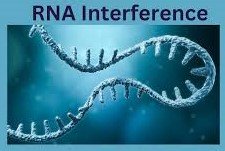In the fast-paced world of academia and professional fields, staying abreast of the latest research is not merely a recommendation but a necessity. The constant influx of new findings means that effective strategies are crucial for keeping up with the latest research and avoiding being left behind. From understanding the core methods of literature review to leveraging advanced digital tools, a systematic approach is key to staying current with research.
The Imperative of Staying Current with Research
The landscape of knowledge is ever-evolving. Discoveries, methodologies, and perspectives emerge daily, making it challenging yet vital to integrate the new research into one's work. For academics, staying current informs teaching, strengthens grant proposals, and ensures the rigor and relevance of their research. In many professional domains, especially those driven by scientific advancement like medicine, technology, or environmental science, incorporating the new research directly translates into improved practice, innovation, and better decision-making. Neglecting to keep up with the latest research can lead to outdated practices, missed opportunities, and a decline in competitiveness. Therefore, actively engaging with the scientific discourse and seeking out the new research is a continuous and indispensable endeavor.

Subscribing to Research Alerts: A Proactive Approach
One of the most efficient ways to ensure you receive timely updates on the latest research is to strategically subscribe to research alerts. Most academic journals, publishers, and major research databases offer free alerting services. These can be customized to deliver notifications directly to your inbox based on specific criteria.
- Journal Table of Contents (TOC) Alerts: Many researchers find it beneficial to subscribe to the TOC alerts of their core journals. This provides a quick overview of newly published articles in issues directly relevant to their specialization, ensuring they don't miss important research.
- Keyword or Search Alerts: Research databases like PubMed and Google Scholar allow users to set up alerts for specific keywords or search queries. When new articles matching these criteria are indexed, you receive an email notification. This is incredibly powerful for tracking the new research on a niche topic or a rapidly developing field. For example, setting an alert for “CRISPR gene editing” or “climate change mitigation strategies” will ensure you are notified of the latest relevant research.
- Author Alerts: If there are particular researchers whose work is highly influential to your own, you can often set up alerts to be notified whenever they publish new material. This helps in following the trajectory of influential research.
- Citation Alerts: For seminal papers in your field, you can set up alerts to be notified when new articles cite that specific work. This helps in understanding how the research builds upon existing foundational studies.
By proactively managing these alerts, researchers can create a personalized stream of the current research, minimizing the time spent manually searching for updates.

Leveraging Research Databases: Your Gateway to the Latest Research
Research databases are the backbone of academic discovery, providing organized and searchable collections of scholarly literature. Effective utilization of these databases is paramount to accessing the breakthrough research.
1. PubMed
Primarily focused on biomedical and life sciences literature, PubMed is an invaluable resource for researchers in these fields. It provides access to millions of citations from MEDLINE, life science journals, and online books. For anyone in health-related disciplines, regularly searching PubMed for the latest research is non-negotiable. Its robust filtering options, including publication date and MeSH (Medical Subject Headings) terms, enable precise searches for the breakthrough research.
2. Google Scholar
As the academic arm of Google, Google Scholar offers a broader, multidisciplinary search across a vast array of scholarly literature, including articles, theses, books, abstracts, and court opinions. Its user-friendly interface makes it accessible for quickly finding the current research across diverse fields. While it may not always offer the same level of granular control as specialized databases like PubMed, its extensive coverage makes it an excellent starting point for discovering the updated research on almost any topic. You can easily set up alerts in Google Scholar for authors or topics, ensuring you're updated on the research.

3. Other Specialized Databases
Depending on your discipline, other specialized databases will be crucial. For instance, Web of Science, Scopus, IEEE Xplore (for engineering), PsycINFO (for psychology), or MLA International Bibliography (for literature) offer curated collections and advanced search functionalities tailored to their respective fields, providing access to the new research within those specific domains. Understanding which databases are most relevant to your area of study is essential for efficiently locating the latest research.
Strategies for Staying Current Beyond Alerts and Databases
While alerts and databases form the core of staying current, a multifaceted approach ensures comprehensive coverage of the current research.
1. Networking and Conferences
Engaging with colleagues and attending academic conferences and workshops provides direct exposure to the latest research findings, often before they are formally published. These events offer opportunities for informal discussions, feedback, and insights into emerging trends and the current research.
2. Academic Social Networks
Platforms like ResearchGate and Academia.edu allow researchers to connect, share papers, and follow the work of their peers. These can be good avenues to discover the current research and engage in discussions around new findings.
3. Preprint Servers
For rapidly evolving fields, preprint servers (e.g., arXiv, bioRxiv, medRxiv) offer early access to research before peer review. While caution is advised as these papers haven't undergone formal scrutiny, they provide a glimpse into the absolute current research and can be crucial for staying at the cutting edge.

4. Research Blogs and News Outlets
Many academic institutions, research groups, and scientific news organizations publish blogs or newsletters summarizing significant latest research findings. These can be a good way to quickly grasp the implications of new studies.
5. Reference Management Software
Tools like Zotero, Mendeley, and EndNote not only help organize your existing literature but also often include features that integrate with databases and allow for tracking new publications, helping you keep up with the new research.
Keeping Up with US Research
When specifically focusing on US research, the general strategies for keeping up with the latest research remain largely the same, given the global nature of academic publishing. However, some aspects are particularly relevant:

- US-Based Funding Agencies: Following major US funding bodies like the National Institutes of Health (NIH), National Science Foundation (NSF), or Department of Energy (DOE) can provide insights into research priorities and funded projects, often indicative of future research trends.
- University Research News: Many prominent US universities have dedicated research news sections on their websites, highlighting breakthroughs and the current research emerging from their faculty and labs.
- Professional Societies: US-based professional societies (e.g., American Chemical Society, American Psychological Association) often publish their own journals, newsletters, and hold conferences that showcase the latest research from their members.
In conclusion, maintaining currency with the current research is a continuous and active process. By strategically utilizing research databases like PubMed and Google Scholar, subscribing to research alerts, actively networking, and exploring other avenues, researchers can ensure they are always informed by the latest research and contribute meaningfully to the advancement of knowledge. The commitment to staying current with the new research is fundamental to intellectual growth and impactful contributions in any field.









